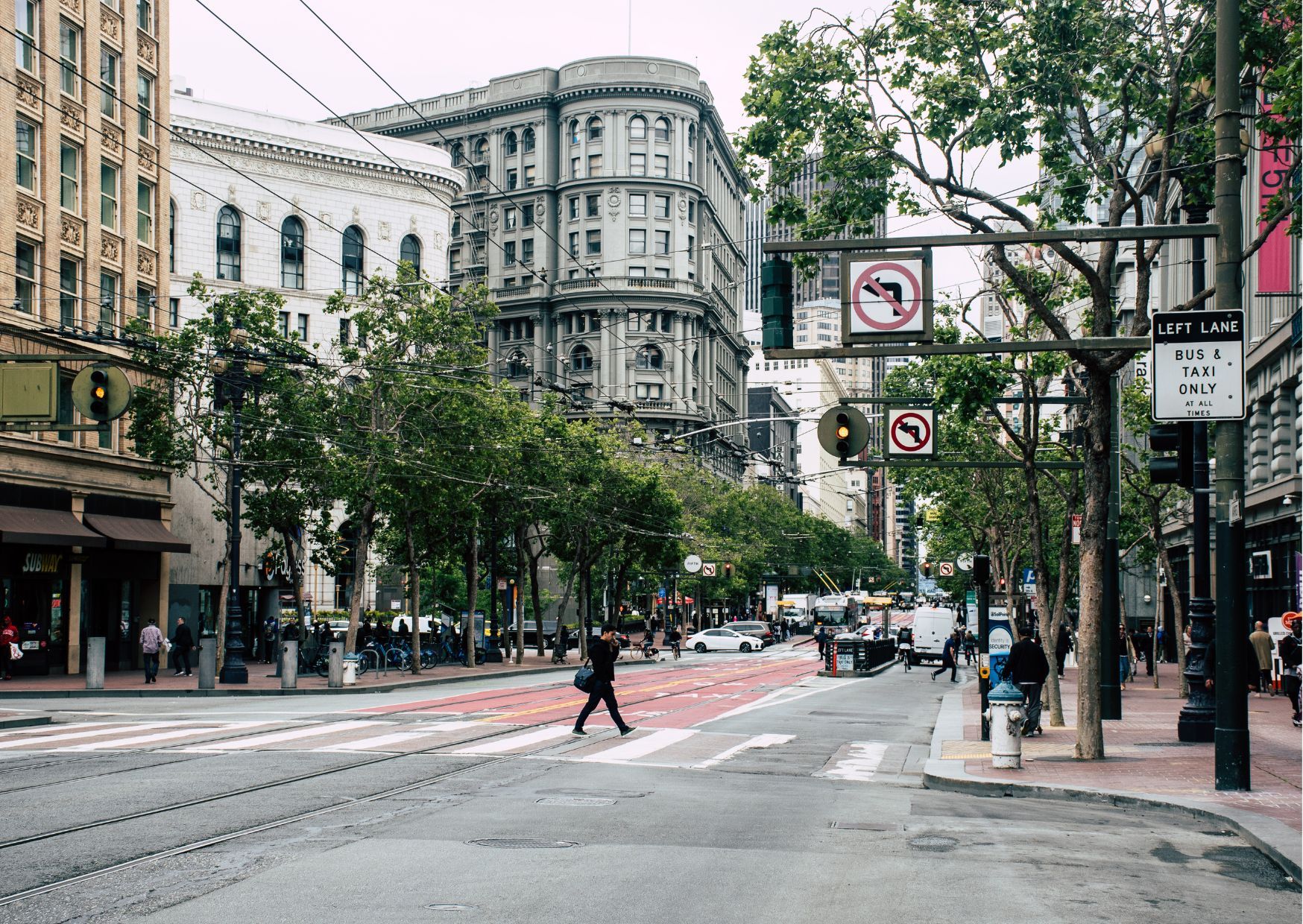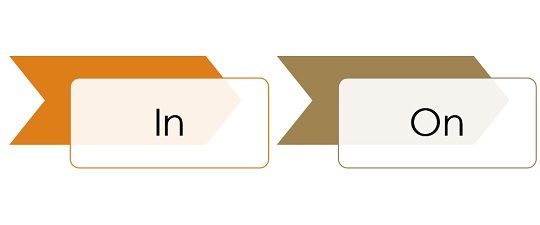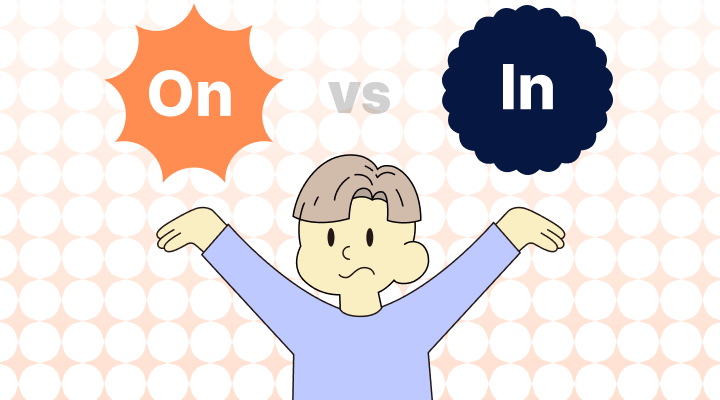On and in are two of the most common prepositions in the English language.
But how do you know when to you one or the other?
Are you in the train or on the train?
You use the preposition in when you are inside a space or object, and you use the preposition on when you are on top of or directly above a space or object.
In terms of time, you would use on and in before the following words:
- On: specific dates, days of the week, holidays
- In: month, season, quarter of the year, year, decades, centuries, school semester
Examples for "on"
- Specific date
The inauguration was on January 20, 2021.
- Day of the week
Jim did his presentation on Tuesday.
- Holiday
People light fireworks on Independence Day.
Examples for "in"
- Month
We are going on a trip to Spain in May.
- Season
In winter, the villager have to clear the snow from the streets.
- Quarter of the year
The company did well in Q4 last year.

In terms of location, here is a chart that will help guide you use the correct preposition:
- On: street name
- In: city, state, country
You can try out some practice questions we made to help consolidate your understanding of the difference between the two prepositions:
- The trash truck comes around in/on Thursdays.
- You shouldn’t wear leather in/on summer.
- In/on India, most people know multiple languages.
- The project will be due in/on June.
- In/on April 18th, Paul Revere rode his horse in town.
- Experts are predicting that the economy will get better in/on the Second Quarter of 2022.
- Where will you be in/on New Year’s Day?
- My teacher lives in/on Cherrygrove Lane, which is only a few streets down.
- I am taking an introductory physics course in/on spring semester.
- The entrepreneur has another house in/on California.
You can either say you are in or on different types of transportation (subway, train, plane) depending on the context. You would say you are on a subway, train or plane when speaking generally, but you would say your are in a subway, train, or plane when you want to emphasis the fact that you are physically inside the vehicle.
Here are some examples:
- I’m on a train to New York City.
- I can’t hear you clearly because I’m in the subway.
However, if it gets confusing, on is the safer bet. Here are more words that are preceded by either in or on:
- In: building, park, school, room, bag, backpack, pocket, elevator, pool, valley
- On: table, chair, floor, stairs, wall, road, street, escalator, beach, cliff, mountain
Feel free to try out some more of our practice questions:
- He placed the books in/on the lobby counter.
- Henry is in/on a plane to Italy right now.
- Can you put this in/on your purse?
- Rose took a seat in/on the chair next to the door.
- The group of tourists went in/on the cafe to buy drinks.
- Her five-year-old son drew in/on the wall with his crayons.
- The students had a bonfire in/on the beach to celebrate their graduation.
- A fly just landed in/on that freshly washed plate.
- Jennifer put her dirty clothes in/on the laundry basket.
- There was a deer in/on the road on our way to the camping site.

If you still have trouble knowing whether to use in or on, you can do a quick check on Engram where our AI proofreader gives you suggestions and feedback on your English writing.

Answers to the practice questions:
- on
- in
- in
- in
- on
- in
- on
- on
- in
- in
- on
- on
- in
- on
- in
- on
- on
- on
- in
- on
Reference:














